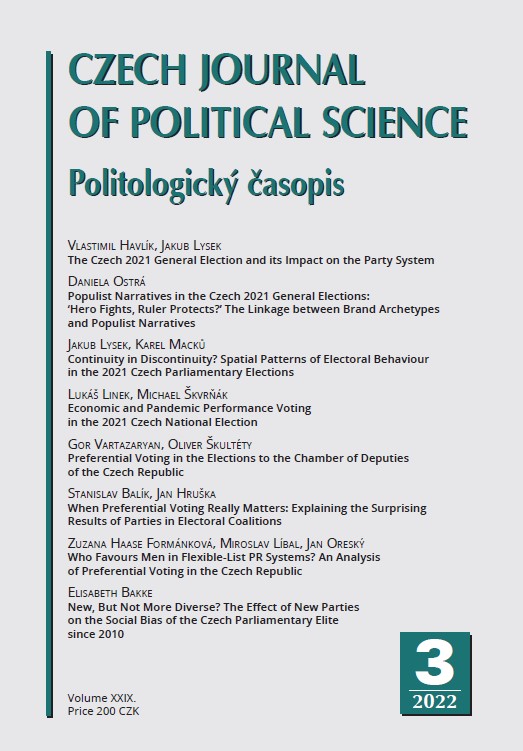New, but Not More Diverse?
New, but Not More Diverse?
The Effect of New Parties on the Social Bias of the Czech Parliamentary Elite since 2010
Author(s): Elisabeth BakkeSubject(s): Politics / Political Sciences, Social Sciences
Published by: Masarykova univerzita nakladatelství
Keywords: Czech Republic; parliamentary elites; new parties
Summary/Abstract: Across Europe, new parties challenge more established parties and are challenged by even newer parties. The ‘new party’ literature focuses on why they succeed or fail, and whether they represent an alternative in terms of ideology, political platform, or ways of organizing, while the impact on descriptive representation has received less attention. Drawing on the new party literature and the elite literature, I investigate whether and how the rise of new parties with few members and little or no presence ‘on the ground’ has changed elite recruitment processes and outcomes in the Czech Republic, with special emphasis on the recent 2021 election. I find that although new parties put together are somewhat more representative of the voters in terms of gender, age, and education, all these parameters vary across the divide between longstanding and new parties. New parties are more open to non-party candidates, but because of low membership nomination processes are in practice even less inclusive and often more centralized than in longstanding parties. Strikingly, all parties reinforce the already strong education bias of the recruitment pool substantially. Otherwise, the social bias of the parliamentary elites to a large extent reflects the bias of the recruitment pool. The effect of preference votes on social bias was limited in most elections and candidate selection modes as such explain next to nothing.
Journal: Politologický časopis - Czech Journal of Political Science
- Issue Year: XXIX/2022
- Issue No: 3
- Page Range: 362-384
- Page Count: 22
- Language: English

